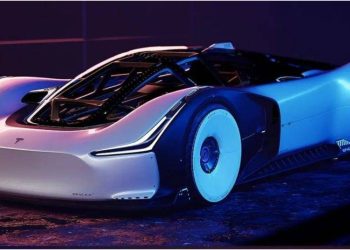The world of technology surprises every day with new innovations for electric mobility evolution. The main brands from the automotive world are increasingly adopting more sophisticated systems for vehicle production, not only to boost their sales, but also to contribute to environmental protection.
Accordingly, Hyundai announced a partnership with IonQ, a U.S. company specializing in Quantum Computing, in order to apply it during car manufacturing.
Quantum Computing is a different paradigm from traditional computation, based on cubits, a special combination of zeros and ones to form algorithms for solving situations that seemed impossible just a few years ago.
Battery Focus
Hyundai and IonQ will apply this new knowledge and start working on Lithium batteries to develop more efficient chemistries. The focus will be on performance, production cost-including supply chain and battery end-of-life-all the way to comprehensive cell safety.
Read also: Rivian will Build a Monumental Complex to Produce 400,000 Electric Vehicles per Year
Through the impressive reach a quantum computer can have, the automotive giant will perform a process of simulating chemical reactions inside battery cells with never-before-seen precision.
This will make it possible to design and develop new materials that save time, money and effort, while increasing charge and discharge cycles before they begin to degrade, improving energy capacity, reliability and higher safety standards.
A Step into the Future
TaeWon Lim, Executive Vice President and Director of Hyundai Motor Group’s Materials Engineering and Research Center, expects this partnership with IonQ to provide innovation in the development of basic materials in virtual space for various parts of future mobility. He noted that from the company they are motivated to enter the new era of innovation with quantum, to have a more effective battery power.

IONQ, a company specialized in quantum computing
For his part, Peter Chapman, President of IonQ assured that the company’s mission is to solve the most complex problems through the continuous development of quantum computations, and see global climate change as one of those problems to be addressed with quantum chemistry solutions.
“Battery efficiency is one of the most promising emerging areas where quantum computing can make a difference. We are delighted to be working with Hyundai Motor Company,” he added.
This partnership solidifies Hyundai’s commitment to electric mobility and sustainability to meet its 2025 goal, by which time it expects to manufacture more than 500,000 electrified cars annually.
Written by I Jhonattan González












